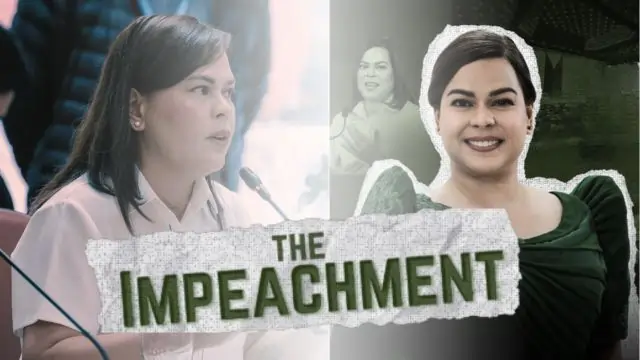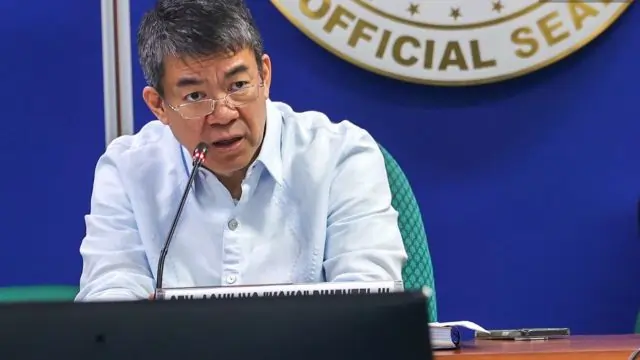Senators warn delay in Sara Duterte’s impeachment defies the Constitution. Learn the legal process, political effects, and why urgency is key.

Introduction
The recent impeachment complaint filed against Vice President Sara Duterte has sparked significant legal and political discussions. At the center of this issue are concerns about constitutional compliance and the urgency required in handling such a complaint. Key lawmakers, including Senator Koko Pimentel and Senator Chiz Escudero, have expressed their views on the matter, underlining the importance of upholding due process, following constitutional rules, and maintaining the integrity of the country’s democratic systems.
The Constitutional Requirement for Immediate Action
What the Constitution Says About Impeachment
According to the 1987 Philippine Constitution, the House of Representatives has the sole power to initiate all cases of impeachment. It clearly states that such complaints must be dealt with “forthwith,” which means immediately or without unnecessary delay.
Senator Aquilino “Koko” Pimentel III emphasized this point by stating that delaying the process contradicts the constitutional mandate. He explained that this requirement ensures transparency and accountability in public service. For Pimentel, any attempt to delay or ignore the process weakens democratic institutions and undermines public trust in the law.

Importance of Acting Without Delay
Pimentel stressed that while the filing of an impeachment complaint vs VP Sara Duterte is a serious matter, it is just the first step in a longer process. The Constitution’s order to act “forthwith” means the House should not take too much time before deciding whether the complaint has merit.
He warned that if lawmakers neglect this duty, it sets a dangerous precedent. It may allow political influence or personal alliances to get in the way of justice. According to him, impeachment is not a tool for political revenge but a constitutional method to check on the conduct of top government officials.
The President’s Awareness of the Complaint
Senator Escudero Confirms Marcos Is Informed
Senator Francis “Chiz” Escudero confirmed that President Ferdinand “Bongbong” Marcos Jr. is aware of the impeachment complaint filed against Vice President Sara Duterte. While Escudero did not provide details on the President’s personal opinion, he emphasized the importance of the Chief Executive being updated on matters involving high-ranking officials.
Escudero pointed out that although the President has no direct role in the impeachment process vs. VP Sara Duterte at this stage, being informed helps the Executive Branch prepare for possible political and governance consequences.
Neutrality of the President Is Key
The senator also highlighted that the President must remain neutral and stay away from influencing the proceedings. Escudero cautioned against using the issue for political gain. He believes that the best way to preserve the credibility of the government is to let the legal process unfold without interference.
Due Process and Presumption of Innocence
Filing a Complaint Is Just the Beginning
Senator Escudero reminded the public that the filing of an impeachment complaint against VP Sara Duterte does not automatically mean that Vice President Sara Duterte is guilty. Under Philippine law, anyone accused is considered innocent until proven otherwise. Due process, he said, is essential to make sure the decision is fair and based on facts.
He added that emotions and political pressure must not affect how lawmakers handle the complaint. Instead, they should carefully examine the evidence, hear all sides, and follow the procedures outlined in the Constitution and the House rules.
The Role of the House of Representatives
The next step in the process is for the House of Representatives to decide if the complaint is “sufficient in form and substance.” If the complaint meets these requirements, it will be referred to the Committee on Justice. The committee will then conduct hearings to determine whether there is probable cause to proceed with the impeachment.
This is where due process plays a key role. The Vice President Sara Duterte, like any other official, must be given a chance to explain her side, submit evidence, and respond to the accusations. Any decision made without following these steps would be legally questionable and politically dangerous.
Political and Legal Implications
Public Trust in Institutions at Stake
Both Senators Pimentel and Escudero agree that how the impeachment case against VP Sara Duterte is handled will affect public trust in government institutions. If the process is delayed or influenced by political bias, people may lose faith in the country’s legal and political systems.
Senator Pimentel warned that failure to act according to the Constitution may create a perception that powerful officials are above the law. This is harmful not only to the government’s credibility but also to the stability of the political system.
Encouraging Transparency and Accountability
The impeachment process is one of the checks and balances built into the Philippine Constitution. It serves as a reminder that even the highest-ranking officials are accountable to the people. By dealing with the complaint promptly and fairly, the government can show its commitment to transparency and justice.
Lawmakers are urged to perform their duties based on legal standards and not personal relationships or party alliances. This ensures that justice is served and the rule of law is respected.
Moving Forward: What to Expect Next
Timeline and Possible Outcomes
If the complaint moves forward, the House Committee on Justice will investigate and determine whether to recommend impeachment. If the committee finds sufficient evidence, the case will be voted on by the full House. A one-third vote of all members is needed to approve the Articles of Impeachment and transmit them to the Senate.
The Senate will then act as the impeachment court, where a trial will be held. The Senators will vote on whether to convict or acquit the Vice President Sara Duterte. A two-thirds vote is required to remove her from office.
Importance of Public Involvement
As the impeachment case against VP Sara Duterte progresses, it is important for the public to stay informed. Citizens should listen to the facts, understand the legal procedures, and avoid spreading false information. Civic engagement plays a crucial role in making sure that the process remains transparent and fair.
Conclusion
The impeachment complaint against Vice President Sara Duterte is a critical test for the country’s democracy. Legal experts and lawmakers agree that it must be handled with urgency, fairness, and respect for the Constitution. As Senators Koko Pimentel and Chiz Escudero pointed out, this is not just about one person—it is about defending the rule of law and preserving public trust in government institutions.
Whether or not the complaint leads to an impeachment trial, the process itself must serve as an example of how democratic systems work. Transparency, due process, and accountability must guide every step moving forward.
Follow us for more!
